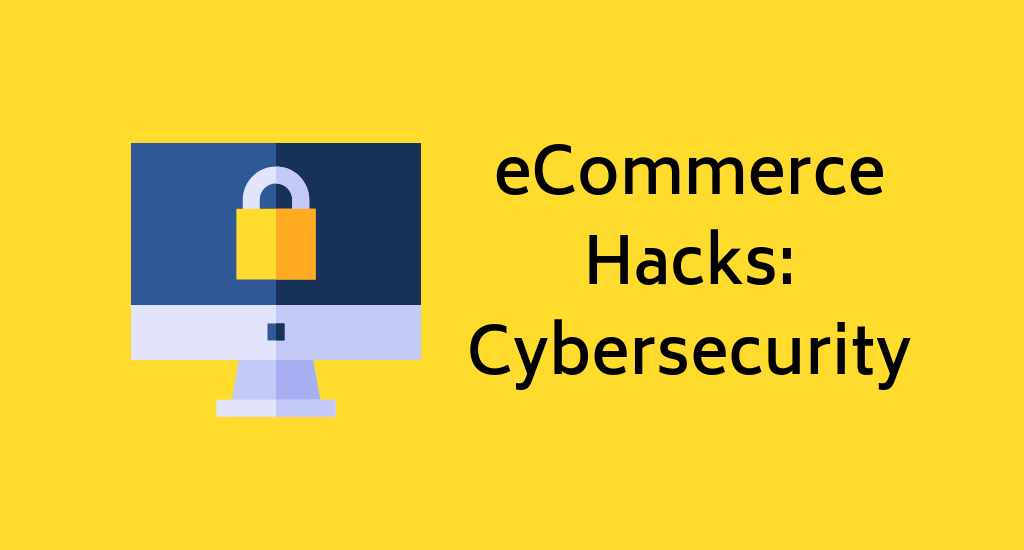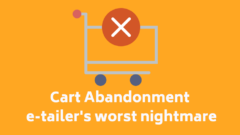Online stores are targeted by hackers 24/7. Do you know how much you risk if you don’t protect your eCommerce well enough? Read more about our eCommerce hacks!
Out of all branches of industry, eCommerce is the one the most exposed to digital threats. Not only because the whole eCommerce is based online, but also because huge amounts of personal information are being processed by online stores. Some less cautious entrepreneurs also keep payment information on their servers, even though it is probably the most dangerous practice possible.
Let’s find out how to minimize the risk and make your store secure. Read about our new eCommerce hacks!
Why care about eCommerce security so much?
Online stores are extremely prone to scandals concerning their reputation. Every time data leaks from a store’s IT system, the case is all over the media and customers immediately lose trust in this brand. Especially medium-size and small companies are at risk here, since they may not have resources to manage the situation and survive the (hopefully temporary) reputational crisis.
Reputation is one thing, but actual responsibility for your customer’s safety is something even more important, for a number of reasons:
- Social responsibility – people trust you with their data, don’t let them down!
- GDPR related responsibility – if your business is based in Europe or deals with European customers, you should be very careful about any security breaches. Fines for not meeting the strict requirements imposed by EU can ruin even quite prosperous businesses.
What can hackers steal from you?

It seems awfully obvious that hackers want to steal your money. It’s not entirely true, though. What they really care about is personal information of your customers, which can, later on, be sold on the black market or used to perform other frauds, login information of your users, which can be used to access their email accounts, if they are not careful enough and use similar passwords in many places. After acquiring your customers’ information, hackers would also most probably blackmail you.
Among other horrendous things they can do, if you don’t make use of our eCommerce hacks, are:
- Redirecting your customers to fake payment services
- Redirecting the items bought by your customers to different shipping addresses
- Obtaining the source code of your eCommerce to sell it on the black market
- Swapping the content of your website with harmful or untrue information
- Infecting your server with viruses or using your website to infect your users’ systems
- Using your server’s processing power to mine cryptocurrencies
- Infecting you and your customers with ransomware
Hackers’ methods of work

Hackers hate wasting time and always try exploiting vulnerabilities that are well known and have been identified in the past and most probably already fixed in new versions of software – but are you sure your store is running of the freshest version of the eCommerce platform? Forgetting about regular updates is like leaving your front door open. Keeping your software always up-to-date is one of the most important eCommerce hacks, when it comes to security!
What other bugs can hackers make use of?
- XSS bugs, thanks to which a criminal is able to extract your users’ cookies and log into their accounts in your system, even if the password is still secret.
An XSS bug allows the server to execute scripts injected in text fields on the website, for example in the comment section. Such script can, for instance, provide the hacker with your administrative cookies and let them take full control over your website and its ecosystem.
- RCE errors which let the criminals to execute whatever commands they want on your system, even if they have no permissions whatsoever.
No. 1 of the eCommerce hacks says: most
Make sure you are as secure as possible
It is impossible to be 100% secure, however you should always work hard to minimize the risk. As I have already stressed, always keep your software up to date. Even if you get angry each time your Windows get an update and require a restart, you should acknowledge the importance of updates. They are there not to irritate you, on the contrary, their goal is to let you sleep tight.

Another must-have among eCommerce hacks
Web Application Firewall (WAF) is a system that automatically recognizes and blocks most of
Multicomponent authorization is a great way of improving security, but it is to uncomfortable to use in eCommerce world, unfortunatelly. Most experts recommend adding this feature to every online service, but they understand that it may be too complicated to users and drive them away.
How to verify if your eCommerce is secure enough?

After making sure that the abovementioned steps towards security have been undertaken, there is not much more you can do on your own. It requires a lot of specialized skills and knowledge to test a website’s and systems security. In fact, it takes a real hacker to do it properly.
Actually, the most important factor to be taken into consideration, when deciding on hiring a “penetration tester” is the fact, that such a person is totally independent and unbiased. A pentester can assess your system from a fresh perspective and find problems you haven’t even thought were possible.
3 approaches to ethical hacking
There are at least three ways to approach penetration tests:

- White box,
- Grey box,
- Black box.
The last one, black box tests, are the most interesting and insightful. Such tests resemble actual hacking attempts to the highest degree. In order to perform a black box test, a tester is not provided with any data “from the inside” and has to work only with what is available to an average user of the service.
Later on, the eCommerce owner is presented with a comprehensive report covering every aspect of security related problems and can start implementing appropriate changes. But that is not all!
After every found problem is addressed, a good tester should conduct re-tests to check whether no new issues have emerged in he meantime.
Is security testing safe?
The question that comes to minds of many business owners is: Is it safe to perform all this hacking on my website?
Fortunately, the answer is “yes”. There is
In order to perform a pen test, a tester must establish a safe work environment. Working on live databases would mean risk of damaging customer data or other errors and one simply cannot risk that. The same goes for data leaks – a tester is there to prevent them, not to cause them.
Is there a 100% security guarantee?
Unfortunately, every good security expert says the same: it is impossible to be completely certain about one’s security. There aren’t any eCommerce hacks to guarantee that. But they also agree that there is no other way, but to strive for perfection. The logic behind this is simple: hackers don’t want to waste time and prefer attacking targets that are easy to beat. You don’t need to be 100% secure to be safe, then. You just don’t want to be attacked, you want the criminals to pick other, weaker targets. And this reasoning works.
About the author

- Jacob
- Digital dropshipping propagator, e-commerce expert, linguist and cyclist. A literary blogger in free time.







